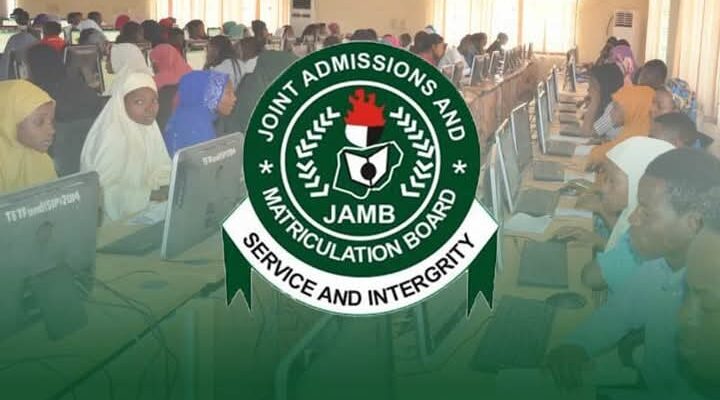EDUCATION: Time for a reformation of Nigeria's tertiary educational entry system By Abai Francis

The massive failure recorded in the 2025 Unified Tertiary Matriculation Examination (UTME) sparked nationwide outrage among parents, some of whom, in desperation, besieged the Ikoyi Lagos office of the Joint Admissions and Matriculation Board (JAMB) to vent their displeasure and to seek for the cancellation of the examination.
In the UTME results released on Friday, May 10, the Board officially announced that more than 78.5 percent of candidates scored less than 200 points out of the 400 maximum points obtainable. Statistically, the 78.5 percent represents over 1.5 million that scored below 200 while only about 420,000 scored above 200, out of the approximately two million candidates that sat for the examination.
In his response to the outcry and condemnation from stakeholders over the poor outcome, the Minister of Education, Dr. Tunji Alausa, maintained that the high failure rate in the 2025 UTME has indicated that the government’s anti-malpractice measures are yielding results, especially within the JAMB system. However, in sharp contrast, the JAMB registrar, Ishaq Oloyede, during a press conference in Abuja on Wednesday, May 14, admitted to a technical error that compromised the integrity of the results from the 2025 UTME in 157 centres nationwide. According to him, the results of 379,997 candidates were affected.
Throwing more light on the development, he revealed that the Board discovered the discrepancies linked to faulty server updates in its Lagos and south-east zones, which went undetected, and led to the failure to upload candidates’ responses during the first three days of the examination. He thereafter proffered that students in the affected zones would undergo a resit.
First of all, I commend the JAMB registrar for coming clean by admitting the error which has laid credence to the claims of outraged parents and even students, who rejected the outcome of the examination. But what caught my attention was the minister's comment that seemed to glorify his office rather than take responsibility for its poor outcome. In my opinion, it should be his uppermost responsibility for an overall excellent performance rather than hiding behind the fight of examination malpractice as reason for vilifying its poor outcome. What is the essence of being an education minister if your ministry is underperforming?
The outcome of mass failure, albeit arising from a technical glitch, calls for reforms in the country's system of tertiary entry programmes conducted by the JAMB. While the JAMB exists as a central body that conducts examination as criteria to gaining admission into institutions of higher learning in the country, it must however face the fact that examination is never a true test of knowledge. Anytime the Board disqualifies candidates seeking admission into higher institutions on the basis of a mandatory "cut-off" mark, it is inadvertently depriving Nigerians from acquiring education. The question then is: "What happens to those acclaimed as failures by the JAMB?"
This mode or criteria practiced in the country for students seeking admission into tertiary institutions is not helping in building human assets for the country's labour force but it is rather decimating such. Moreover, classifying those who do not achieve the mandatory cut-off mark as "failures" has a psychological impact too. It should be stated here that the purpose of examination should be seen as a tool to measure performance and not to adjudge one's intellectual capability. Therefore the JAMB should abstain from branding a student as a failure just because s/he did not meet its conditions for gaining admission into higher institutions. This branding of some students as failure is one of the reasons for examination malpractice in the first place because of the stigma associated with that term "failure" and also the need for students to avoid idleness for another year.
It is also imperative to note a stark reality that is before us, which is that the country's investment in higher education is not commensurate with its population growth. In other words, the country has failed to invest more in educational institutions thereby narrowing down the number of admission seekers in a state of population boom, which is currently affecting majority of the country's youths. This shortage of institutions clearly reveals the lack of importance that its leaders attach to education as a bedrock to nation building.
For instance, in the 2024 budget, the education sector received an allocation of N1.5 trillion, with an additional N81 billion allocated to other MDAs for education-related activities. This represents approximately 7.9% of the total budget. Though a significant increase from previous years, however, the country has consistently failed to meet the UNESCO benchmarks for education spending, generally considered to be 15-20% of total public expenditure or 4-6% of Gross Domestic Product (GDP). In sharp contrast, the Nigerian federal government's allocation to the Ministry of Education has been significantly lower.
Going forward, the federal government should come up with various schemes to engage its youthful population, who, when are not rightfully engaged, can become evil vices in the hands of detractors. The government should in this regard widen the options available to the youths, education-wise. For those who could not gain admission into tertiary institutions should have access to other options to engage and develop their skills. As far as I am concerned, the government should explore alternatives to ensure that the skills of the youths are tapped into for the growth, development and prosperity of the country, rather than encouraging idleness, which this current system promotes. The system whereby the JAMB annually deprives majority of the country's youths from acquiring education is one that calls for serious attention.
To sum it all, I do recall in the early 1990's, having written several examinations, I once posed these questions to my aunt's husband on what I perceived then as a roadblock to my quest for knowledge: "Global organisations like UNICEF among others are advocating for quality education and increasing literacy levels in Africa but why is the system hindering young people like me, who are desperate for knowledge, from getting admissions into the university? I feel that each time I don't meet the cut-off mark they are indirectly telling me I'm not qualified to go to school. Isn't that a contrast to the advocacy of boosting literacy on the African continent?"
Thirty years after, we are still where we are when we should have made significant progress as a nation—a nation that is not only endowed with natural resources but with abundant human resources, whose potentials remain untapped because of a discriminatory system and a class of leaders with no concrete innovative plan to adequately engage its youthful population.
#penglobaldiscourse #JAMB #education #Nigeria



